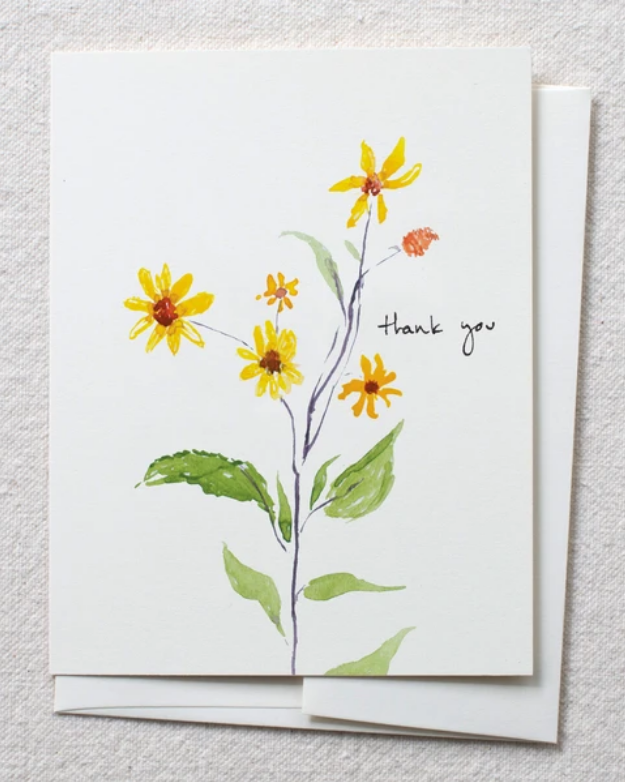
Different Ways to Say Thank-You

Handwritten, Email, or Phone Call?
It's always correct to send handwritten thank-you's, and people always appreciate them. Handwritten notes are warmer and more personal than a phone call or email, and only second best to thanking someone in person. The general rule is: If you open a gift in the presence of the giver, then your verbal thanks are sufficient. For example, when you receive a hostess gift, or a holiday/birthday gift from a good friend or relative and you open it and express your sincere thanks personally, then a follow-up thank-you is optional. If the giver wasn't present, then a phone call is fine. Email is great when you just need to say a simple thanks quickly.
Here's a rundown of when a note is expected:
- Wedding or baby shower gifts. After giving shower gifts, the majority of people consider it rude if they don't receive a written note of thanks even if you've given thanks in person.
- Wedding gifts. Each wedding gift should be acknowledged with a written note within three months of receipt of the gift, even when you've given thanks in person.
- Congratulatory gifts or cards. Send a note to anyone who sends a present or card with a personally written message to acknowledge an accomplishment, such as a graduation or promotion.
- Gifts received when sick. Notes should be written when the patient feels well enough, or a relative or close friend can write notes on his or her behalf.
- Sympathy notes or gifts. Send a written thank-you to anyone who sent a personal note, flowers, or a donation. It's fine for a close friend or relative to write notes on the recipient's behalf.
Different Gifts, Different Thank-You Notes
Different kinds of gifts and occasions merit some tweaking to the standard thank-you note.
- Gifts of money. In your note, let the giver know how you'll use a money gift—to furnish your apartment or add to your savings. It's up to you whether you mention the amount, but doing so let's the giver know the funds arrived intact.
- Holiday and birthday gifts. Write thank-you notes for holiday and birthday gifts as soon as possible, preferably within two or three days. A good standard is to acknowledge Christmas or Chanukah gifts before New Year's Day.
- Other gifts. Thank-you notes are not always necessary for presents that have been given in person at a housewarming, going away party, or similar occasion. If a sincere thank-you was expressed in person when the gift was received, that's sufficient.
- Thank-you gifts. Gifts sent as a "thank you for..." require a note of appreciation in return. It's necessary to let the sender know that the present arrived and is appreciated.
- Acknowledgment cards. Printed acknowledgment cards expressing appreciation can be used in three instances:
- After the death of a prominent person when scores of sympathy notes, gifts of flowers, or donations to charities are received. They can also be used as a placeholder acknowledgement until a personal note of thanks can be written.
- When a public official is elected and receives a landslide of congratulatory messages.
- When a bride has such a large wedding that she and the groom simply cannot write personal thank-you notes immediately.
- A newspaper "Card of Thanks." In some small towns and rural areas, it is not only permissible but expected that recipients of a large number of gifts or contributions—after a birthday, anniversary, retirement party, funeral, or even political campaign—put a public "thank you" in the newspaper. The notice is typically headed "Card of Thanks" and is followed by a brief message.










